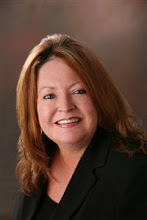Nation's economy appears set for upswing
By Kevin G. Hall khall@mcclatchydc.com
http://www.sacbee.com/business/story/2074069.html
WASHINGTON – The worst U.S. recession in 70 years should end over the next three to six months, judging by data released Friday that showed that the economy's contraction eased considerably from April through June.
The Commerce Department reported that the economy shrank at an annualized rate of 1 percent in the year's second quarter, less than most analysts had expected, and far less than the dramatic 6.4 percent shrinkage in the first quarter, a figure revised downward Friday from the initial estimate of 5.5 percent.
Independent economists think that the economy now is poised to grow, albeit slowly.
"The key point is that this is the last negative (growth) report in the Great Recession, signaling the end of the downturn. The economy won't come roaring back, but at least it's back," said Mark Zandi, the chief economist for Moody's Economy.com, a forecaster in West Chester, Pa.
Several factors augur well for the near future. Recent reports on home and auto sales have shown improvement.
"Leading indicators of activity are pointing up, and the housing sector appears to be stabilizing," Commerce Secretary Gary Locke said in a statement.
Adding to the hopefulness is the stock market, which enjoyed its best July in 20 years – and its best month since October 2002.
The Dow surged 725 points or 8.6 percent for the month, with most of the gains arriving in bursts in the final 15 days. The Dow has risen four of the past five months.
Businesses did cut their stockpiles of goods at a record pace in the second quarter, but even that carries a silver lining, the Associated Press reported.
With inventories at rock bottom, businesses will likely need to ramp up production to meet customer demand. That would stimulate the economy in the current quarter.
AP reported that some economists think that these factors could push growth in the July-to-September quarter to a more vigorous rate than previously forecast – possibly 3 percent annual growth or higher.
President Barack Obama credited the $787 billion economic stimulus plan that passed earlier this year for the emerging signs of recovery.
"This and other difficult but important steps that we've taken over the last six months have helped us put the brakes on recession," he said at the White House. "I am guardedly optimistic about the direction that our economy is going, but we've got a lot more work to do."
Many uncertainties remain.
The first-quarter improvement was fueled, in part, by an 11 percent boost in federal government spending, along with a decline in exports that was far less harsh than in the first quarter.
Consumer spending, which powers two-thirds of U.S. economic activity, remained weak. Real personal-consumption expenditures fell 1.2 percent in the second quarter, after increasing 0.6 percent from January through March.
Sales of durable goods – big-ticket items such as large appliances and wide-screen televisions – shrank 7.1 percent from April to June after expanding at a 3.9 percent annual rate in the three previous months.
The job market appears unlikely to do much to increase that spending in the near future.
Although the size of job losses has fallen in recent months, the Fed says that unemployment – now at a 26-year high of 9.5 percent – will top 10 percent at the end of this year. Businesses likely won't boost hiring until they're certain the recovery has staying power.
Vincent Reinhart, a former top economist at the Federal Reserve who is now a scholar at the American Enterprise Institute, said that the continued rise in joblessness will "test bank balance sheets. That'll test business models generally. … A lot of manufacturing and retail activity doesn't look good when the unemployment rate is above 10 percent."
Economists also worry about commercial real estate.
"The commercial real estate problems are a big worry for the financial system and thus the rest of the economy. … As rents and prices decline, given all the vacant space, commercial mortgage holders will default on their loans, causing big write-downs at banks and other financial institutions," said Zandi, of Economy.com.
Still, the recent economic improvement as well as the easing pace of job losses, could help consumers sense that they are finally in a position to rebuild their nest eggs, and families may eventually start to feel comfortable spending again.
"I don't know when it'll happen, but the savings rate will plateau at some point," Greg McBride, a senior financial analyst at Bankrate.com, told the New York Times. "Consumers will strike that balance between living within their means but still living life."
Subscribe to:
Post Comments (Atom)

No comments:
Post a Comment